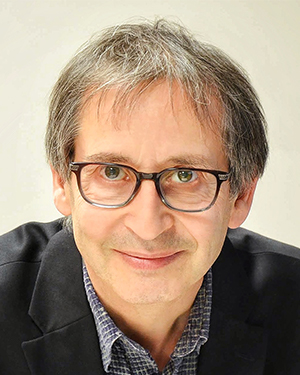Talk details 
- Date: 9 February 2025
- 3 p.m. (ET)
- Location: Zoom
- Video recording
Talk abstract
From the speaker:
“Life on Earth is wonderfully diverse, with a multitude of life forms, structures and evolutionary mechanisms. However, there are two aspects of life that are universal – shared by all known organisms. These are the genetic code, which governs how DNA is converted into the proteins making up your body, and the unexpected left-handedness of the amino acids in your body. One would expect that your amino acids were a mixture of left and right-handed molecules, but none are right-handed! In this talk, I describe how these universal aspects of biology can be understood as arising from evolution, but generalized to an era where genes, species and individuality had not yet emerged. I will also discuss to what extent one can find general principles of biology that can apply to all life in the universe, and what this would mean for the nascent field of astrobiology.”
Presenter
Nigel Goldenfeld holds the Chancellor's Distinguished Professorship in Physics and joined the University of California, San Diego, in fall 2021 after 36 years at the University of Illinois at Urbana-Champaign (UIUC). His research spans condensed matter theory, the theory of living systems, hydrodynamics and non-equilibrium statistical physics. He received his PhD in theoretical physics from the University of Cambridge in 1982, and for the years 1982-1985 was a postdoctoral fellow at the Institute for Theoretical Physics, University of California at Santa Barbara, where his work on the dynamics of snowflake growth helped launch the modern theory of pattern formation in nature. He joined the condensed matter theory group at the Department of Physics at UIUC in 1985, where his work was instrumental to the discovery of d-wave pairing in high temperature superconductors. In 1996, he co-founded NumeriX, a company that develops high-performance software for pricing and risk managing derivative securities. He was a founding member of the Institute for Genomic Biology at UIUC, where he led the Biocomplexity Group and directed the NASA Astrobiology Institute for Universal Biology.
During the COVID-19 pandemic, he pivoted from his experience in mathematical modeling of bacteria and viruses to computational epidemiology. He has served on the editorial boards of several journals, including The Philosophical Transactions of the Royal Society, Physical Biology and the International Journal of Theoretical and Applied Finance. Selected honors include: Alfred P. Sloan Foundation Fellow, University Scholar of the University of Illinois, the Xerox Award for research, the A. Nordsieck award for excellence in graduate teaching and the American Physical Society's Leo P. Kadanoff Prize 2020. He is a Fellow of the American Physical Society, a Fellow of the American Academy of Arts and Sciences, a Fellow of the Royal Society (UK) and a Member of the US National Academy of Sciences.

